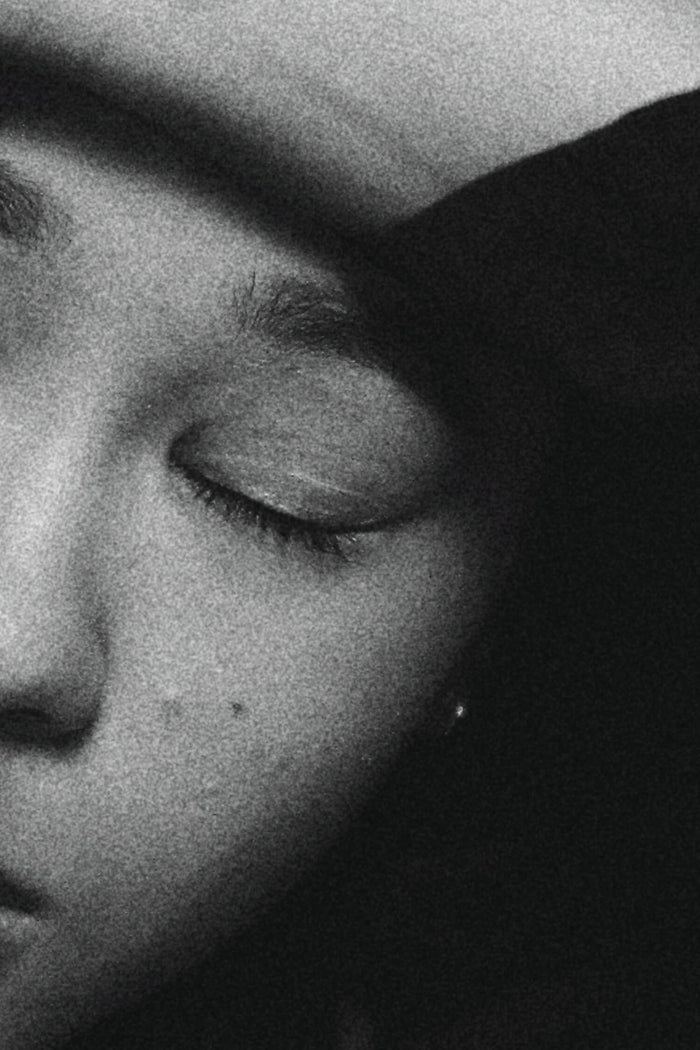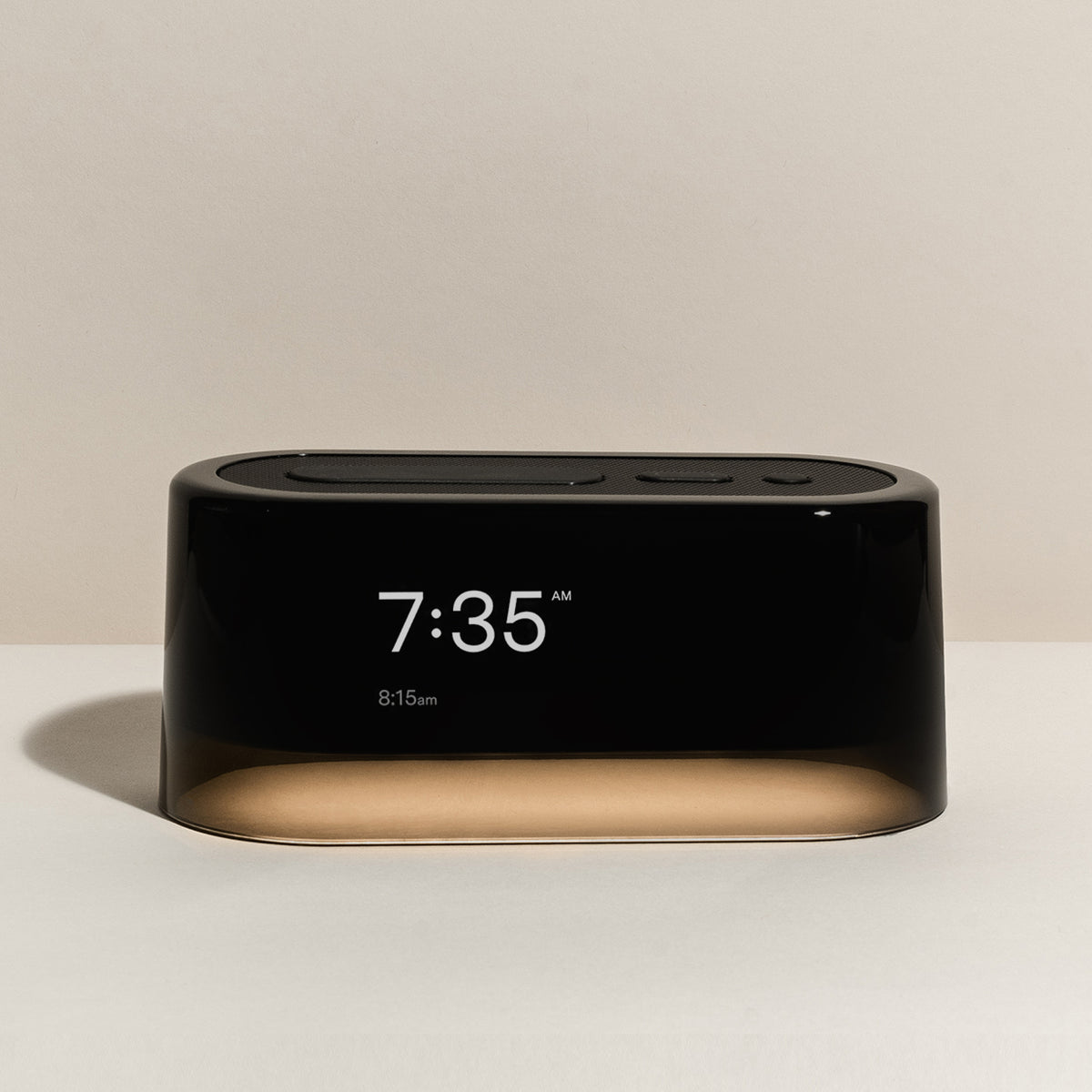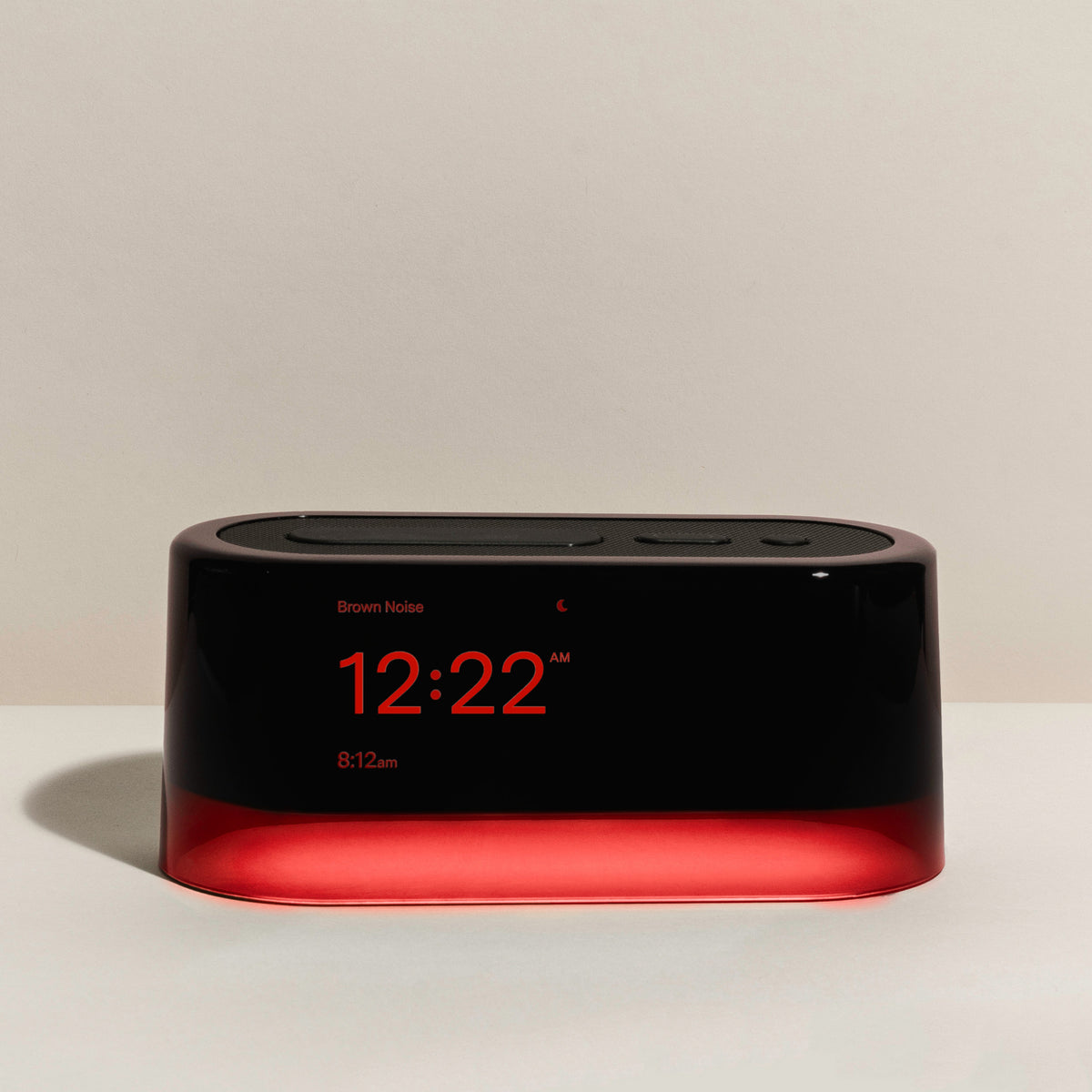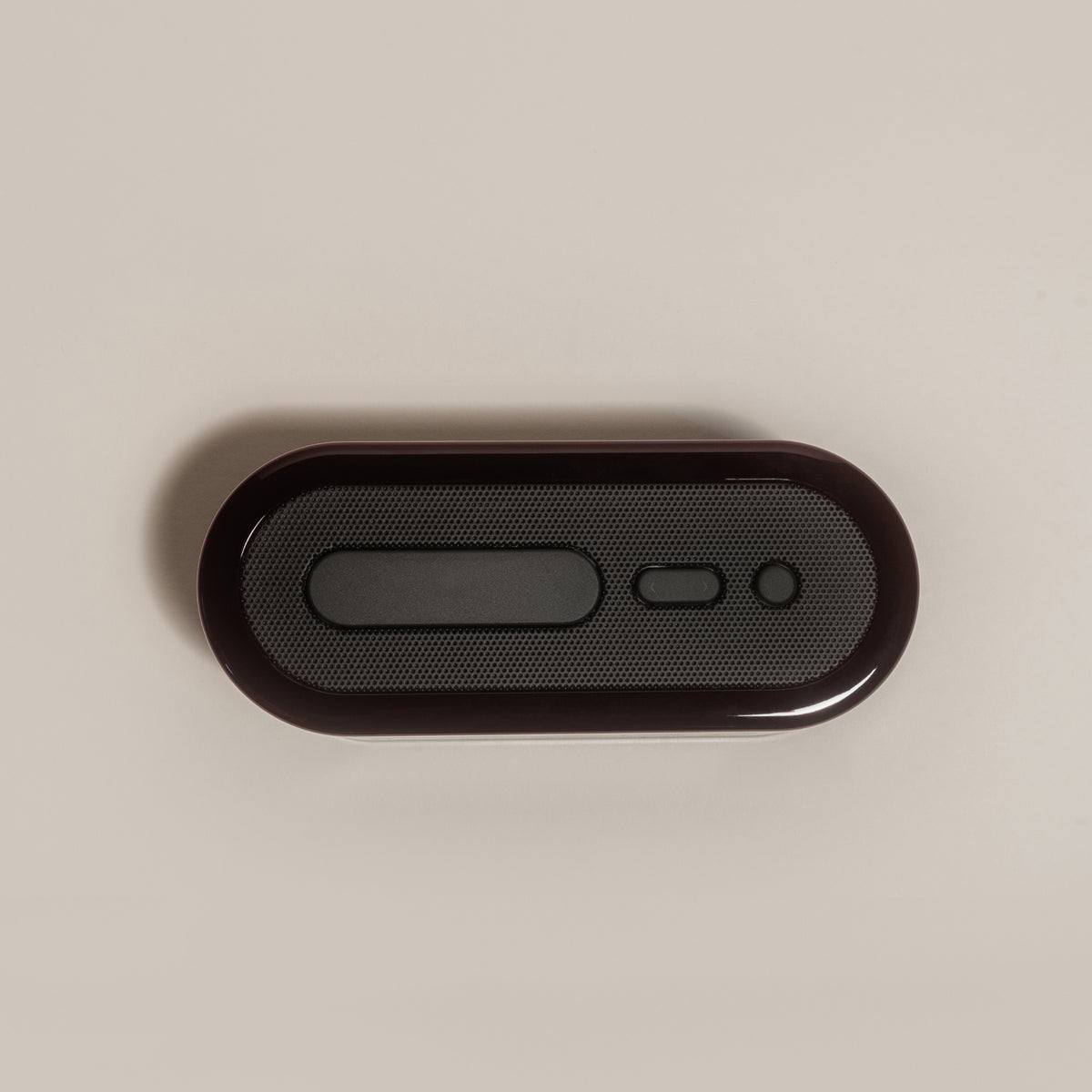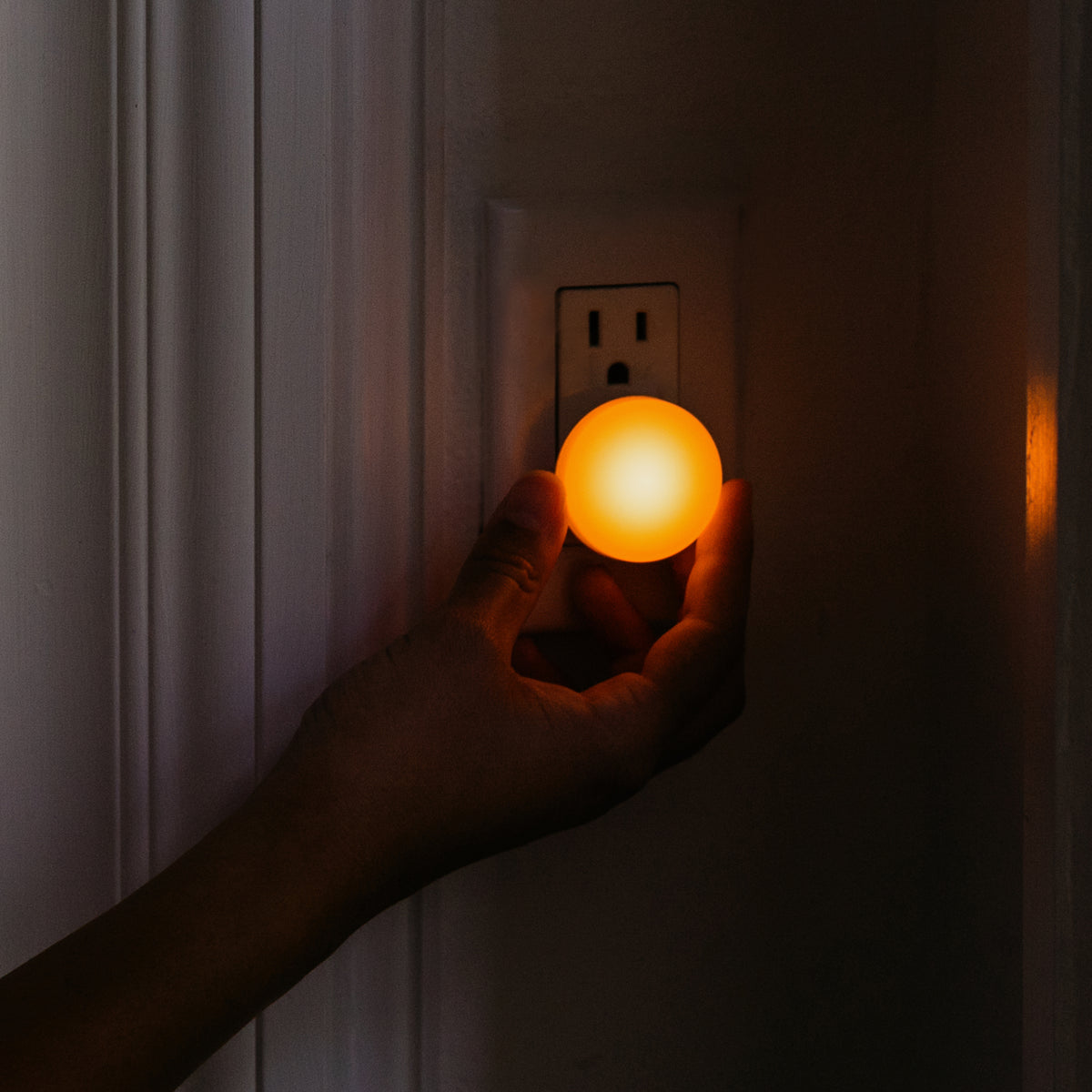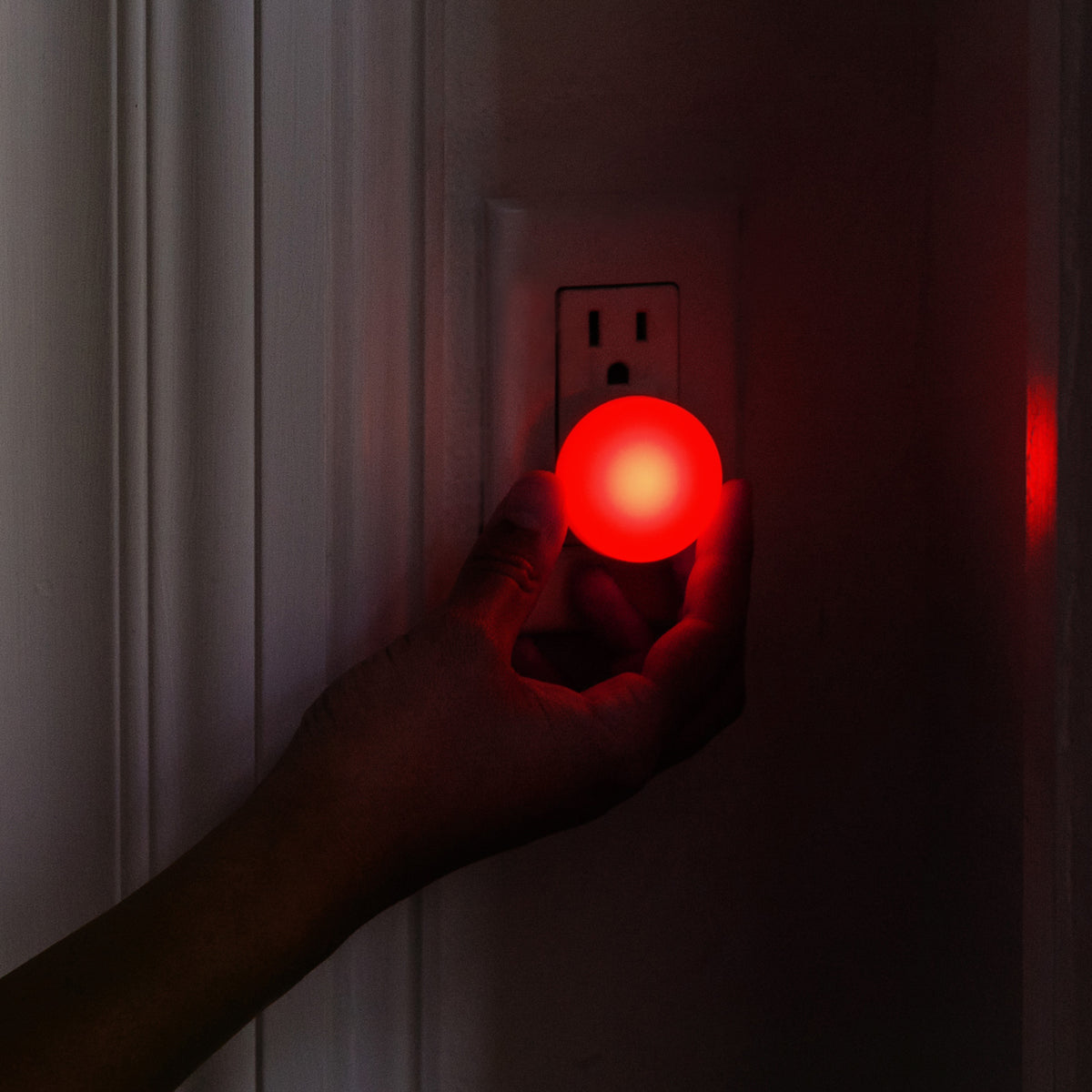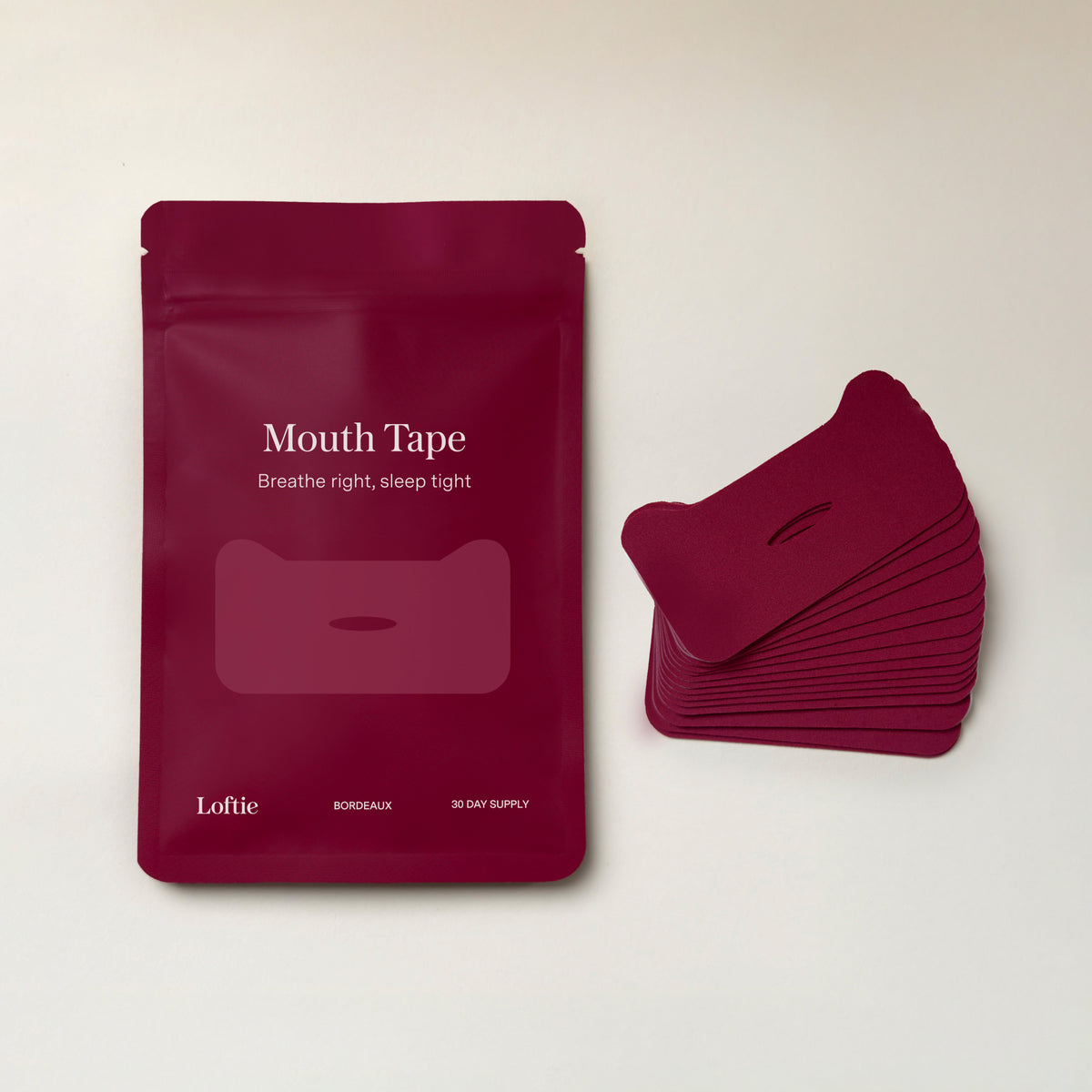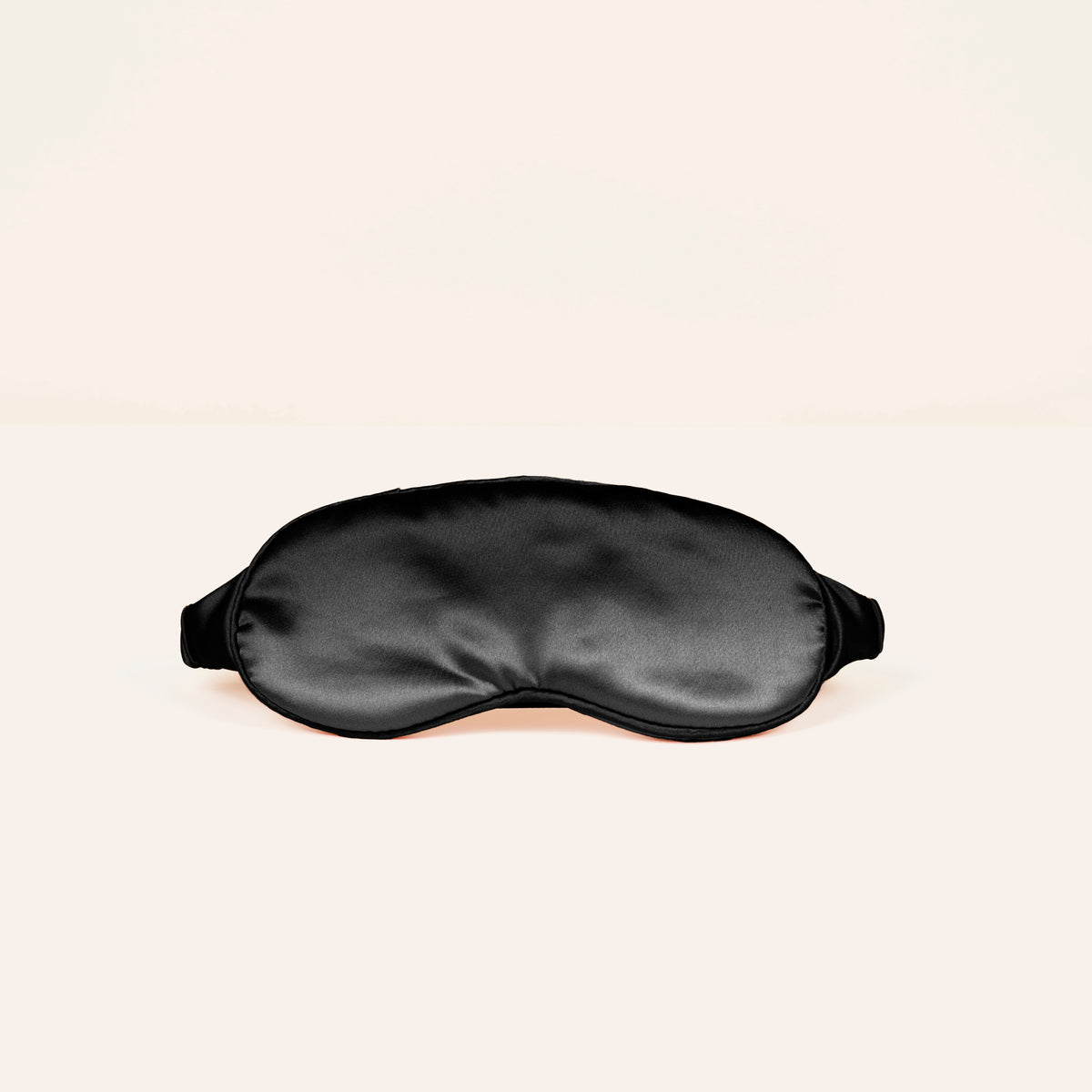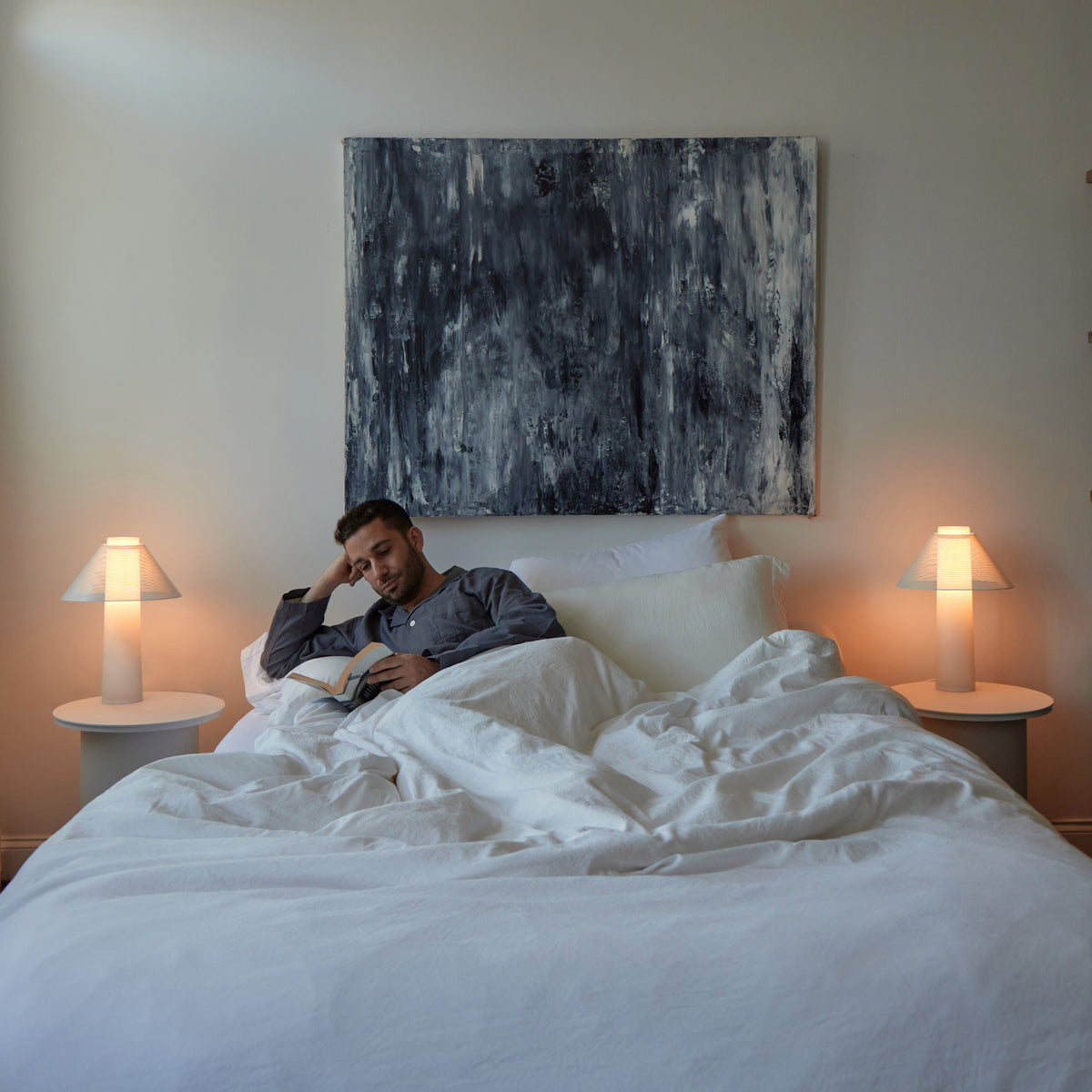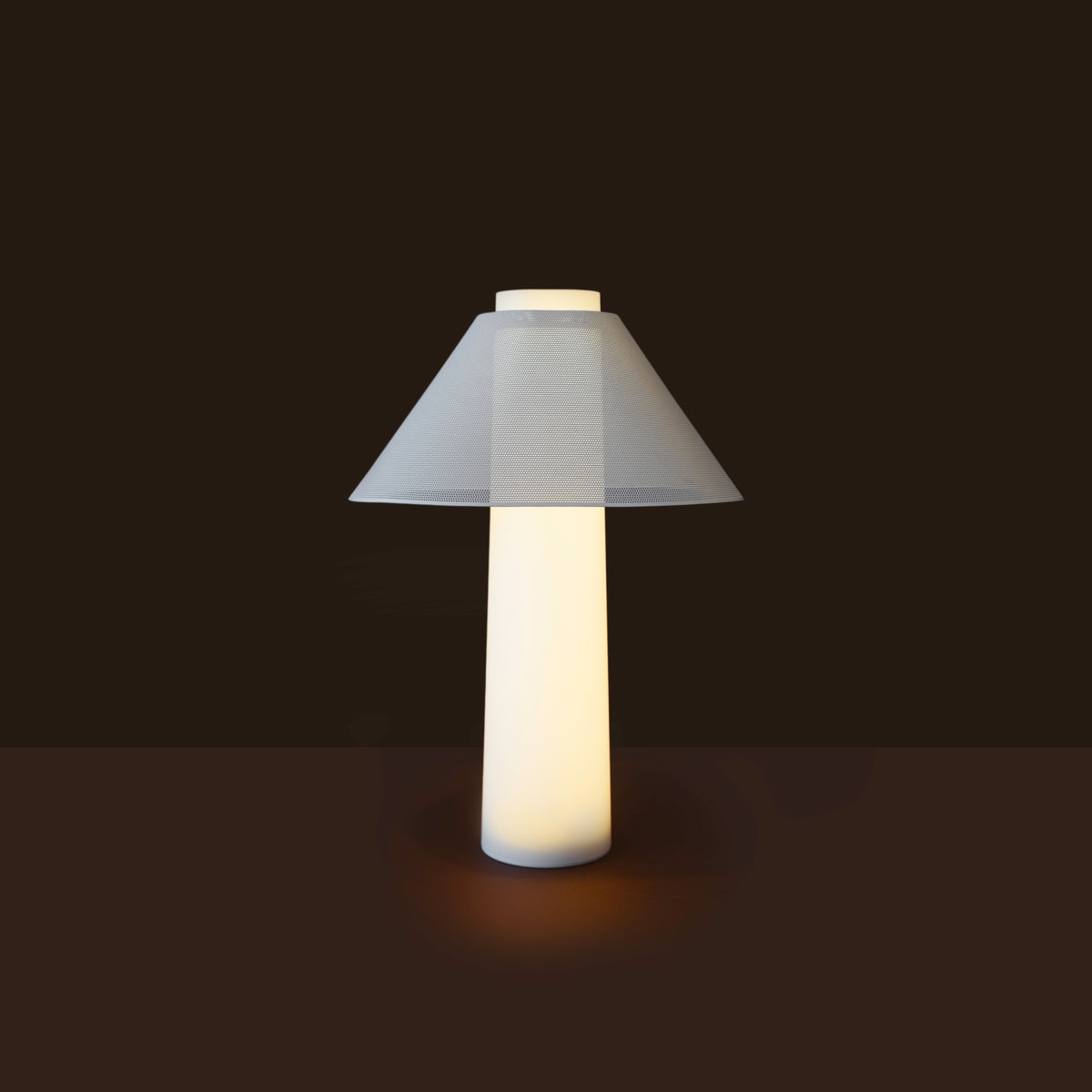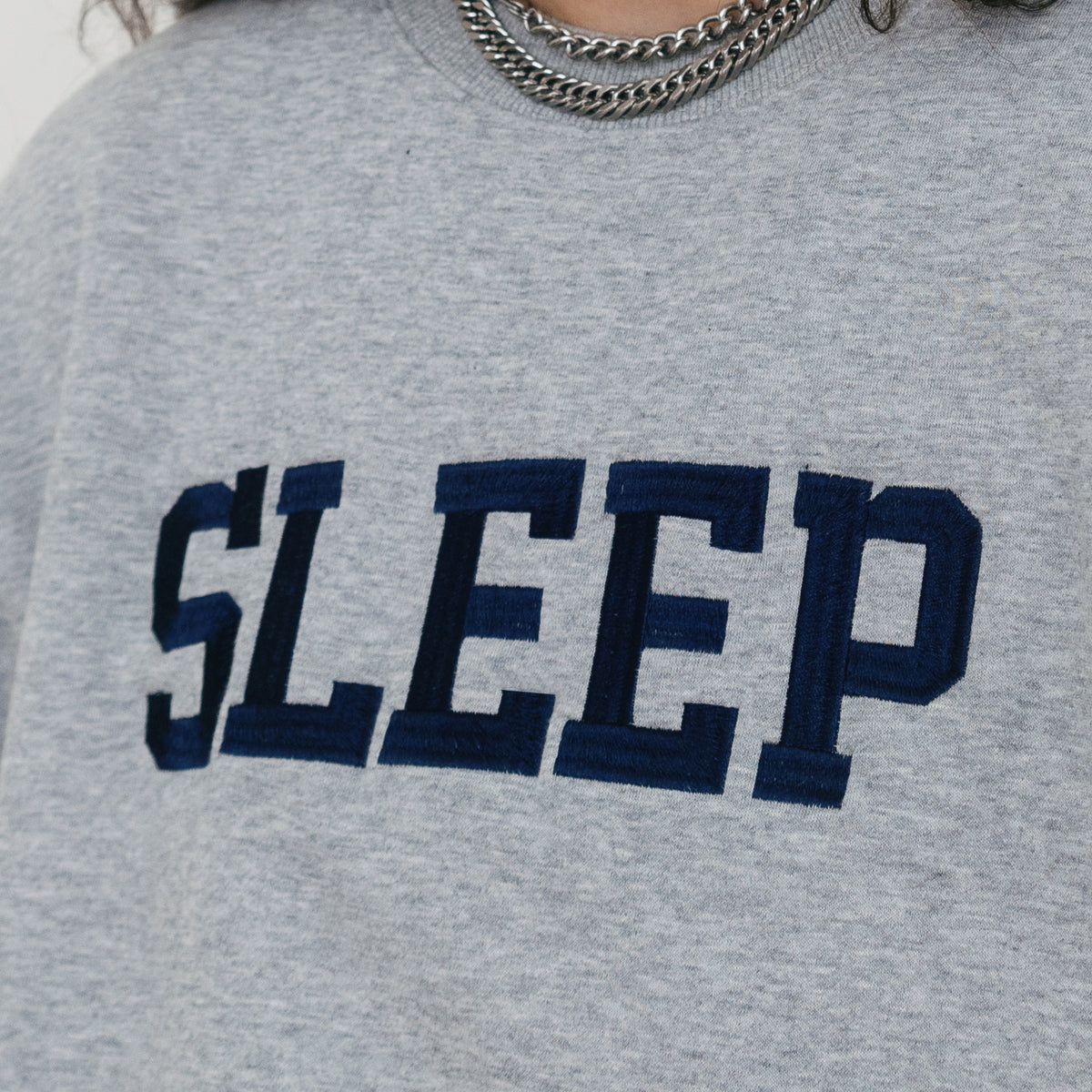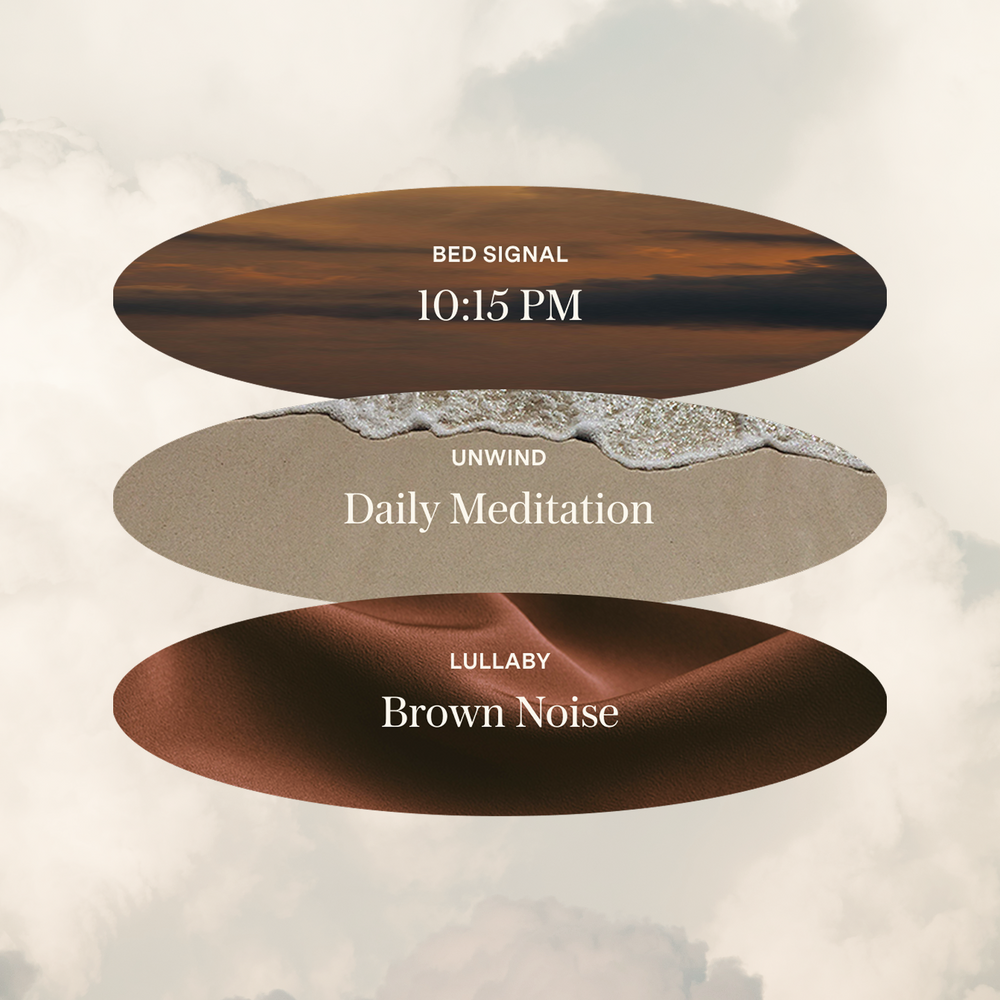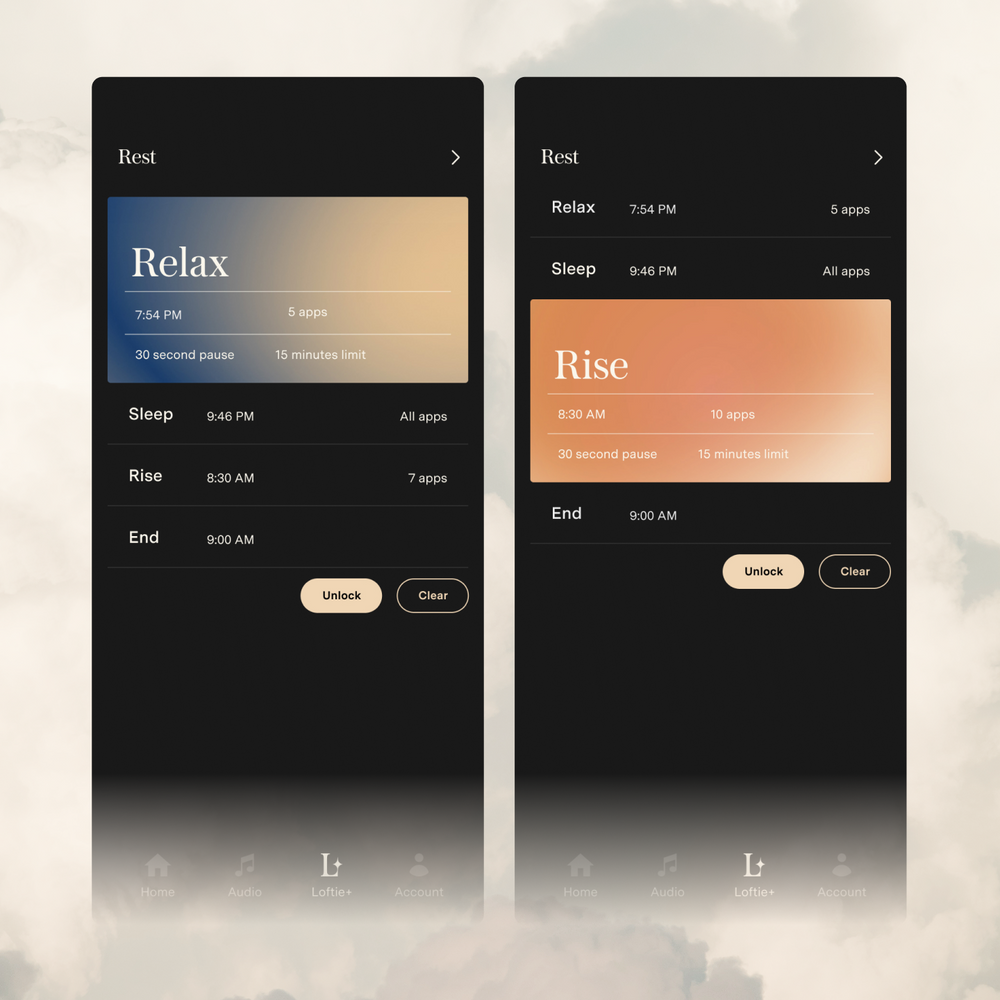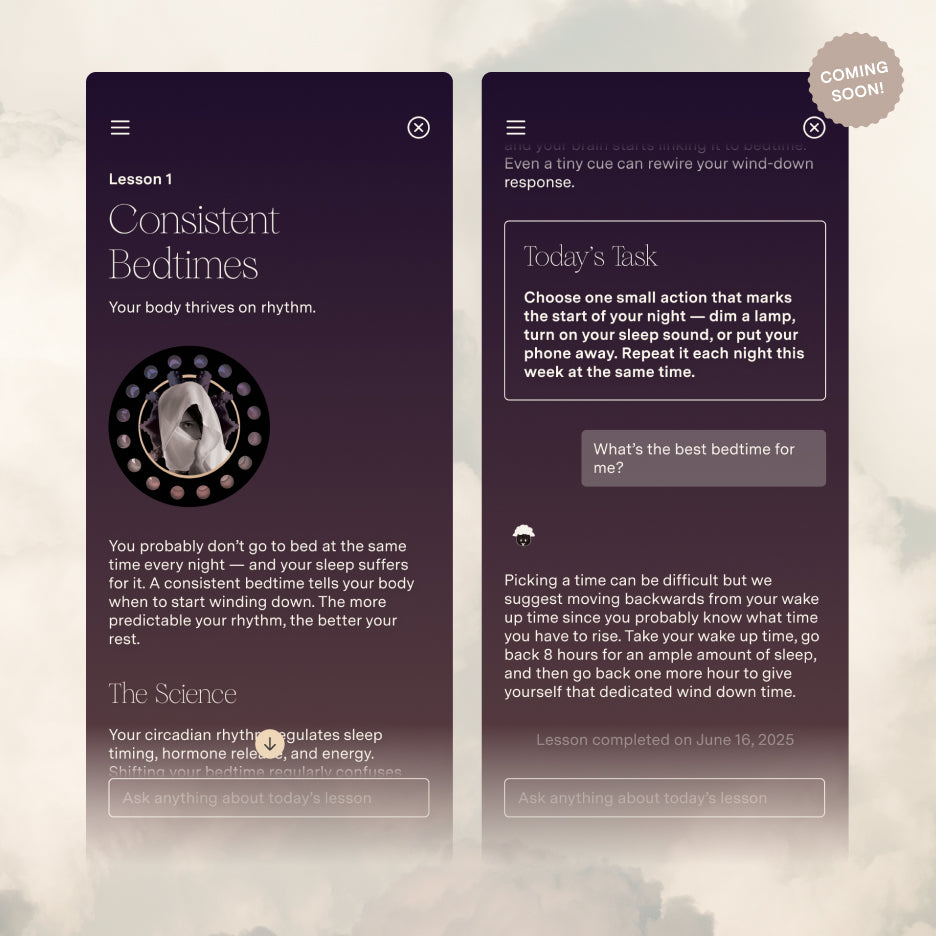It’s easy to get caught up in tackling the day. From endless to-do’s of our own, whether it’s work, family, friends, or even our own, we’re constantly juggling expectations. And usually the first thing to go is hours of our precious sleep. However, it’s the quality of our sleep that allows us to show up at our best (consistently) for what matters most.
Every night we cycle through stages of sleep, and depending on how thoroughly we complete each stage, determines how we feel when we wake up. Below is a closer look at what’s really going on as you sleep and how you can optimize your sleep cycle every night to feel refreshed every day.
What Is a Sleep Cycle?
In a full night’s rest (roughly 7.5 hours), we cycle through two phases of sleep, rapid eye movement (REM) and non-rapid eye movement (NREM) sleep. NREM sleep is divided into three stages, N1-N3. The amount of time spent in each of these sleep stages varies, but research suggests each ranges in total from 60 to 120 minutes. Most people experience four to six cycles of all four sleep stages each night.
Are All Sleep Cycles the Same?
Sleep cycles vary from person to person and night to night. On average, research shows we experience a majority of deep sleep earlier in the night and dreaming sleep in the second half of the night. Each sleep stage offers a variety of unique benefits. The first sleep cycle is often the shortest, with later cycles falling between 90 and 120 minutes.
What Are the Different Sleep Stages?
Sleep experts have determined that there are four sleep cycle stages divided into two categories, rapid eye movement (REM) and non-rapid eye movement (NREM) sleep. Each stage offers its own range of benefits and can be characterized by distinct patterns, brain activity, and timeframes.
- Stage 1 NREM (N1): 1-5 minutes
- Stage 2 NREM (N2): 10-60 minutes
- Stage 3 NREM (N3): 20-40 minutes
- Stage 4 REM: 10-60 minutes
It was originally thought that there were five sleep stages total but in 2007 the American Academy of Sleep Medicine (AASM) confirmed the four stages represent the consensus of each sleep cycle.
NREM Sleep Stages
Non-rapid eye movement (NREM) accounts for three of the four sleep stages. NREM sleep is the first three phases in a given sleep cycle, N1, N2, and N3. As you progress from N1 to N3, brain waves become slower, more synchronized, and eyes remain still.
Stage 1 / N1
The first five minutes of the sleep cycle are the lightest. This “dozing off” stage is referred to as N1—the body hasn’t fully relaxed, but brain activity begins to slow down. If you are abruptly awoken during this brief stage, you probably will feel as though you never fell asleep. However, if undisturbed, it’s easy to move quickly into stage two.
Stage 2 / N2
The first N2 sleep cycle lasts for about 10-25 minutes and can become longer throughout the night. Collectively, a person spends about half of their total sleep time in N2 sleep. This is when muscles begin to relax, breathing slows, and body temperature drops. Brain waves reveal short bursts of activity that naturally help you resist being woken up.
Stage 3 / N3
N3 is the final NREM stage, and is marked by high-amplitude, low-frequency brain waves. The higher the NREM stage of sleep, the more difficult it becomes to wake someone. This stage is known as “deep sleep,” “slow-wave,” or “delta sleep.”
N3 is believed to be a critical stage if you want to get the most restorative benefits of your sleep cycle. This stage commonly lasts 20-40 minutes and is characterized by a decrease in heart rate and further relaxation. Most deep sleep is experienced in the first half of the night and evidence suggests this stage promotes insightful thinking, creativity, and memory. As the night progresses, these stages get shorter with more time being spent in REM sleep.
REM Sleep
So, what is REM sleep? REM is the fourth sleep stage and occurs approximately every 90 minutes. It’s known for the time in the evening when you experience the most vivid dreaming, and it’s also essential for memory, learning, and creativity. Depending on your age, REM accounts for 20%-25% of an 8-hour night of sleep. REM states are broken into shorter cycles starting at 10 minutes, then progressively getting longer towards the morning, sometimes lasting as long as one hour. During REM, brain activity nears levels similar to when you’re awake. At the same time, the body undergoes temporary paralysis except the eyes and muscles that control breathing.
What Affects the Sleep Stages?
There are a number of internal and external factors that impact sleep. For example, as we age the time we spend in each sleep stage changes. Newborns spend about 50% of their sleep cycle in REM compared to adults who spend about 25%. Underlying conditions such as depression and sleep disorders can affect sleep quality. Substances like alcohol, caffeine, and tobacco can can delay and decrease REM sleep. Sleep disorders like sleep apnea and Restless Leg Syndrome (RLS) can also cause interruptions in a healthy sleep cycle.
How To Improve Your Sleep Cycle
We can’t control our specific sleep stages, but we can ensure we give our body enough time to progress through each sleep cycle. Since your most restorative sleep occurs during the second half of the sleep cycle, getting at least seven hours is ideal. Less than that and you run the risk of skipping a cycle.
One of the best ways to improve your chances of completing its optimum amount of sleep cycles is by aligning your circadian rhythm. You can do this by establishing a consistent sleep schedule, getting plenty of natural daylight throughout the day, and avoiding caffeine and alcohol. You can also create a sleep environment that promotes relaxation with comforting essentials like the Loftie Clock and Loftie Lamp. These are two easy ways to personalize your sleep routine with calming soundscapes and lighting. If you’re still struggling to get your most restorative sleep, speak with a medical provider who can address possible underlying issues.

